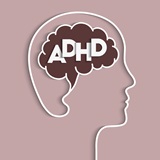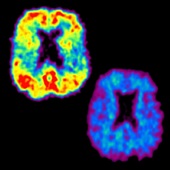Workforce Insights: October 2025

 In a major win for members, our sustained advocacy to restore MBS physician telephone items has been successful. From 1 November 2025 you will have greater flexibility with telephone consultations.
In a major win for members, our sustained advocacy to restore MBS physician telephone items has been successful. From 1 November 2025 you will have greater flexibility with telephone consultations.
You’ll have greater flexibility to deliver longer and more complex follow-up consultations by phone, improving continuity of care for patients who can’t easily attend in person. Three new MBS telephone items will be available to consultant physicians and specialists for follow-up consultations, including telephone equivalents for items like 116, 133 and 143. These new telephone items mirror existing face-to-face and video options and will complement current items for shorter consults.
In a new AusDoc article on our reform leading advocacy efforts, medical oncologist and RACP telehealth spokesperson, Associate Professor Christopher Steer FRACP, explains his view of the benefits.
“Time and again, I try to give my patients video consultations, and the video drops out. That’s a fact of life. There are also people who are challenged by the technology, and not a small number" says Associate Professor Steer.
This achievement reflects years of sustained advocacy by the College and members. Our thanks to everyone who contributed to restoring these vital items for equitable patient access.

On 24 September, the NSW Government announced an investment of $5.4 million to establish Mentally Healthy Workplaces Australia – a new national centre aimed at improving mental health in workplaces
This is an important step forward for physicians and your patients. The College has long called for a national health and wellbeing centre through our Faculty of Occupational and Environmental Medicine and most recently through our 2025 Federal Election statement.
Read more

On 25 August, the RACP convened a virtual ADHD Roundtable with representatives from major medical colleges, specialty societies and government departments.
Discussions focused on improving shared-care models, ensuring timely and equitable access to ADHD services for children and adolescents, and identifying key advocacy opportunities.
The Roundtable marks an important step toward national collaboration and reform. Read more about outcomes and next steps.
Find out more
Artificial intelligence (AI) is changing the way you deliver healthcare from clinical documentation to predicting patient outcomes. Our Evolve webinar series, hosted by Professor Ian Scott FRACP, explores which AI tools are ready for adoption and how they can enhance person-centred care.
The first session in September attracted more than 280 members, with lively discussion and practical insights. A recording will be available soon via the Evolve website.
Upcoming webinars
- Wednesday, 26 November 2025: How to use AI scribes and assistants effectively
- Wednesday, 18 February 2026: How to use AI to predict and prevent care-related harm
Each session attracts CPD hours. Register now to join the discussion.
Register now
 In September, the NSW Chief Health Officer, Dr Kerry Chant FAFPHM, met with RACP Australasian Chapter of Addiction Medicine leaders to discuss workforce challenges arising from the NSW Drug Summit Report. The meetings achieved positive outcomes, including a commitment from NSW Health to continue working with the College on strengthening the Alcohol and Other Drugs workforce.
In September, the NSW Chief Health Officer, Dr Kerry Chant FAFPHM, met with RACP Australasian Chapter of Addiction Medicine leaders to discuss workforce challenges arising from the NSW Drug Summit Report. The meetings achieved positive outcomes, including a commitment from NSW Health to continue working with the College on strengthening the Alcohol and Other Drugs workforce.
At Dr Chant's request, a more in-depth meeting was held with two NSW Health Chief Addiction Medicine Specialists, Dr Hester Wilson FAChAM and Professor Katherine Conigrave FAFPHM FAChAM, and the Executive Director of the Centre for Alcohol and Other Drugs, to explore AOD issues in greater detail.
Both meetings achieved excellent outcomes, including a strong commitment from the NSW Chief Health Officer to work closely with the RACP on these issues going forward.
In Aotearoa New Zealand, the RACP and the Paediatric Society of New Zealand have jointly called for an end to the practice of placing adult patients in paediatric wards. The statement highlights clinical, ethical and legal risks and calls for national guidance to prevent such placements. It also called for Health NZ | Te Whatu Ora and sector leaders to develop clear, nationally consistent guidance to prevent or strictly limit the placement of adults in paediatric spaces.
 Across Australia, states and territories are considering or progressing reforms to ADHD care, including expanding the scope of practice for general practitioners to diagnose ADHD and prescribe stimulant medication. Health Ministers nationally have endorsed the goal of harmonising ADHD diagnosis and prescribing practices.
Across Australia, states and territories are considering or progressing reforms to ADHD care, including expanding the scope of practice for general practitioners to diagnose ADHD and prescribe stimulant medication. Health Ministers nationally have endorsed the goal of harmonising ADHD diagnosis and prescribing practices.
Our representatives have emphasised the importance of national consistency, safety and equitable patient access – particularly in regional and remote areas. We are pleased to contribute our expertise as jurisdictions advance ADHD reform and will continue working closely with health officials across Australia.
You can read our call for safe, quality, appropriate ADHD care here.
Following our advocacy, for clearer guidance targeted to physicians and trainees, Ahpra has amended its National Prescribing Competency Framework. It now includes a new competency on prescribing for off-label indications, with clear expectations around evidence, risk/benefit assessment, documentation, and informed consent. The updated Framework also places greater emphasis on shared decision-making, person-centred care, and cultural safety, alongside clearer examples and practical supports for physicians.
Our new Binational Working Group met for the first time on 26 September. One of its priority areas is developing an RACP Position Statement on Physician Assistants/Associates. The College has previously raised a range of concerns around this term and the potential use of this role in Australia and plans for their expanded use in Aotearoa New Zealand.
The Working Group members and the Policy and Advocacy Team are working together to ensure we hear from a broad range of members. For more information about this work or if you wish to share your perspectives, please email the Policy and Advocacy Health Care Reform Team: Health.Reform@racp.edu.au
.jpg?sfvrsn=9505ad1a_1&MaxWidth=180&MaxHeight=&ScaleUp=false&Quality=High&Method=ResizeFitToAreaArguments&Signature=55C87C6F1767B492A459EA031C9BCE199A0FB326) In early September, we represented you at the inaugural Therapeutic Goods Administration (TGA) Medicines Shortages Stakeholder Forum. Meeting with the Australian Federal Government, we voiced concerns on key medicine shortages and related issues impacting your daily practice, workplace conditions and your patients’ outcomes.
In early September, we represented you at the inaugural Therapeutic Goods Administration (TGA) Medicines Shortages Stakeholder Forum. Meeting with the Australian Federal Government, we voiced concerns on key medicine shortages and related issues impacting your daily practice, workplace conditions and your patients’ outcomes.
Together, we reviewed progress of the TGA’s Medicine Shortages Reform Program and discussed how evolving practice conditions, changes in demand and PBS access issues can influence supply. Attendees agreed that the Forum must take a strong strategic focus on outcomes, complementing existing TGA medicine shortages working groups.
This is a significant opportunity for the RACP to strengthen our influence in medicines policy and work towards addressing a challenge to your daily practice. We encourage you to contribute to this important work by applying to represent the RACP as a proxy Forum representative.
Find out more
 The Australian Federal Government has announced the Thriving Kids initiative – a national system of support for those who are outside the National Disability Insurance Scheme (NDIS). Commencing 1 July 2026, it will focus on identifying developmental concerns earlier for children aged eight-years-old and under with mild to moderate developmental delay and/or autism.
The Australian Federal Government has announced the Thriving Kids initiative – a national system of support for those who are outside the National Disability Insurance Scheme (NDIS). Commencing 1 July 2026, it will focus on identifying developmental concerns earlier for children aged eight-years-old and under with mild to moderate developmental delay and/or autism.
The RACP, with the Australasian Society for Developmental Paediatrics and Academy of Child and Adolescent Health, wrote to the Minister regarding our vital involvement, noting this is an important issue for our members and the contributions we can provide.
An inquiry into the
Thriving Kids initiative was recently announced, with the committee led by paediatrician Dr Mike Freelander MP FRACP (Chair) and paediatric neurologist Dr Monique Ryan MP FRACP (Deputy Chair). We have provided a submission to the Inquiry and thank you to our members who provided important input for this.
Healthy Futures (Pae Ora) Amendment Bill – Aotearoa New Zealand
The RACP and Māori Health Committee called for investment in a supported workforce and safe workplaces, opposing amendments that undermine clinician voice and patient safety. Dr Matt Wheeler FRACP presented a powerful message to the Health Select Committee. Read more
Supervised Practice Framework
Our submission to Ahpra highlighted the need for practical supervision guidance, flexibility for rural settings, and better wellbeing supports for supervisors and trainees. Read more
My Health Record reforms
We’ve called for a system that works for specialists in our recent submission. We called on improved interoperability, stronger privacy protections, and targeted incentives to encourage specialist engagement. Read more
Delivering Quality Care More Efficiently Report
Our submission to the Productivity Commission emphasised practical action on digital integration, medicines access, AI adoption and workforce wellbeing. Read more
Credentialing and clinical governance
We recently wrote to the Australian Commission on Safety and Quality in Health Care (ACSQHC). We urged it to make credentialing fair, transparent and portable across settings, and called on it to strengthen protections within the National Clinical Governance Model.

Listen now
Australia has just approved a second amyloid-targeting therapy for patients with incipient Alzheimer’s dementia. Lecanemab (Leqembi) now joins donanemab (Kisunla) on the Australian Registry of Therapeutic Goods but the impact of both has been modest in Phase III trials to date. After 18 months of therapy they delay progression of disease, as quantified on neurocognitive tests, by around five months on average.
For some, the prolonged independence and dignity will justify the $60,000 to $80,000 a year price tag for the drugs. But for the Pharmaceutical Benefits Advisory Committee 'the high burden of [donanemab] treatment on both patients and the health system, combined with the risks and modest clinical impact, makes the drug unsuitable for PBS subsidy'.
This burden includes specialist consults, gene screening, multiple MRI and PET brain scans, and delivery of monthly or fortnightly infusions, adding up to another $20,000 in costs. Even before considering these logistical requirements, Australian memory clinics don’t have anywhere near the capacity to address the 245,000 new cases of early dementia or mild cognitive impairment every year.
Advocates see these disease-modifying therapies as a turning point for dementia research and argue for further investment in the systems infrastructure needed to roll them out. Sceptics argue that the available evidence instead questions the importance of amyloidosis in the Alzheimer’s disease cascade.
Guests
- Professor Michael Woodward AM FRACP FANZSGM FAAG FAWMA (Austin Health, Melbourne; University of Melbourne)
- Dr Chrysanth Pulle FRACP (Prince Charles Hospital, Brisbane)
Please visit the Pomegranate Health webpage for a transcript and supporting references. Log in to MyCPD to record listening and reading as a prefilled learning activity. Subscribe to new episode email alerts or search for ‘Pomegranate Health’ in Apple Podcasts, Spotify, Castbox or any podcasting app.

Are you an Aboriginal and/or Torres Strait Islander, Māori or Pacific Islander* medical graduate or trainee? Applications close 30 November 2025
Get support for your RACP training journey, including:
- $2,500 cash
- full coverage of RACP training fees for the duration of your training
- examination fees covered (first attempt only)
- financial support to attend trainee days, RACP events or Annual Scientific Meetings
- ongoing support throughout your training
Find out more
*Pacific Islander applicants must be residents of Aotearoa New Zealand.
 As healthcare workers who dedicate our lives to helping others, it’s important to take the time to care for ourselves. We would like to remind everyone that it's okay to not be okay. If you need someone to talk to, you can reach out to the RACP Support Program. It's a free, 24/7 and completely confidential support service that is delivered externally through Converge International.
As healthcare workers who dedicate our lives to helping others, it’s important to take the time to care for ourselves. We would like to remind everyone that it's okay to not be okay. If you need someone to talk to, you can reach out to the RACP Support Program. It's a free, 24/7 and completely confidential support service that is delivered externally through Converge International.
Whether you have something worrying on your mind, are finding getting out of bed to be a struggle, or just feel like talking to someone for helpful, judgement-free advice, this free support service may be just what you need.
Find out more